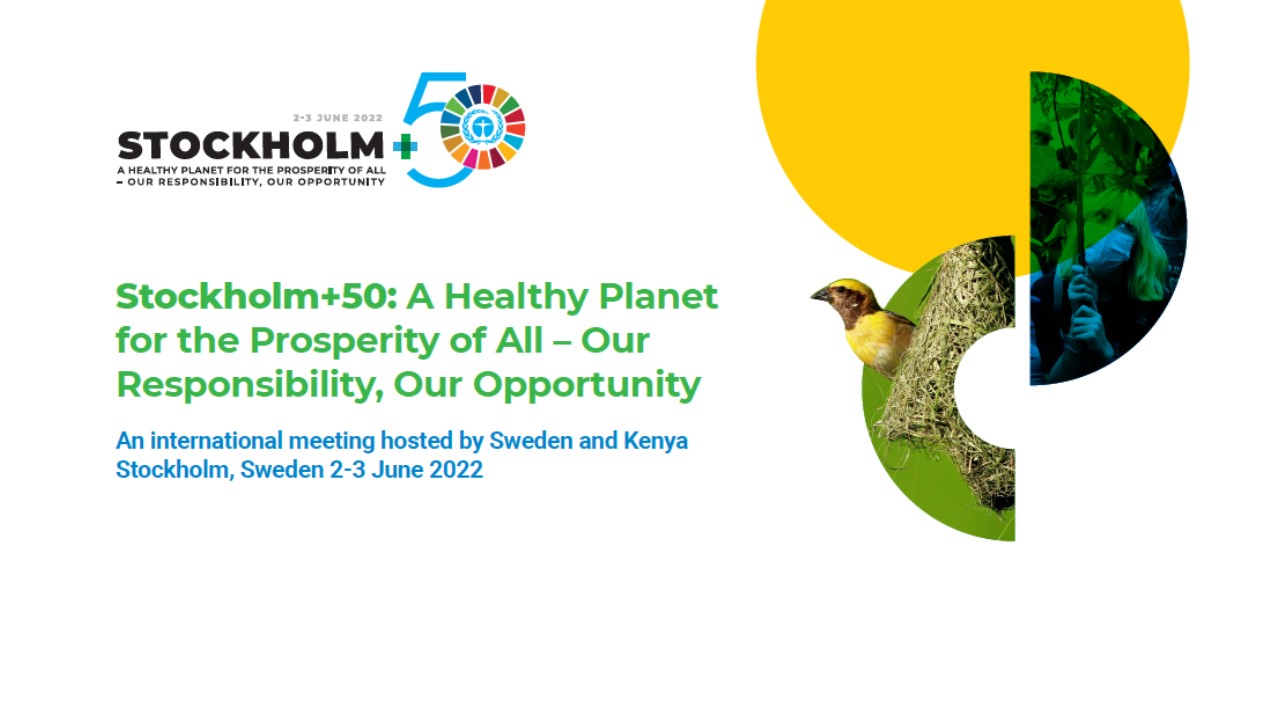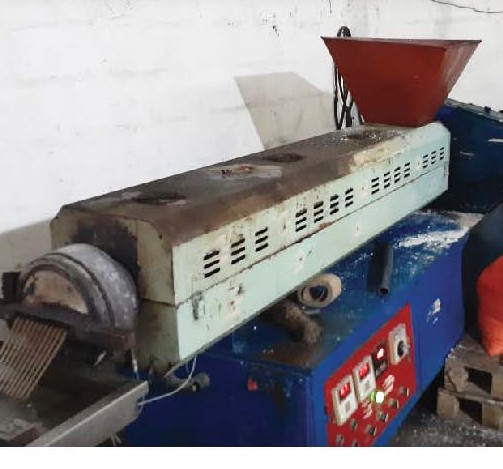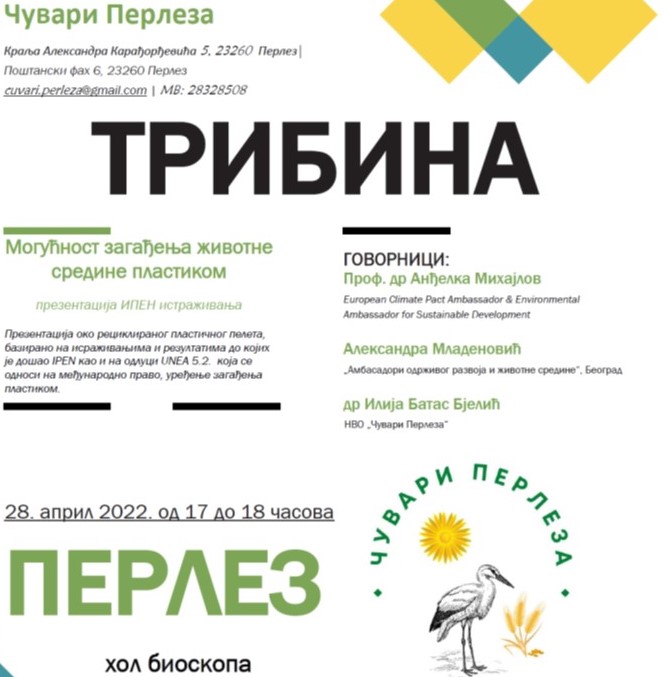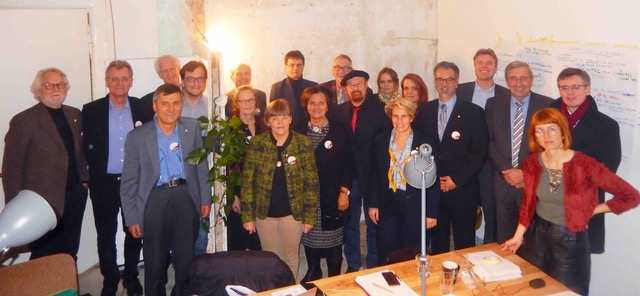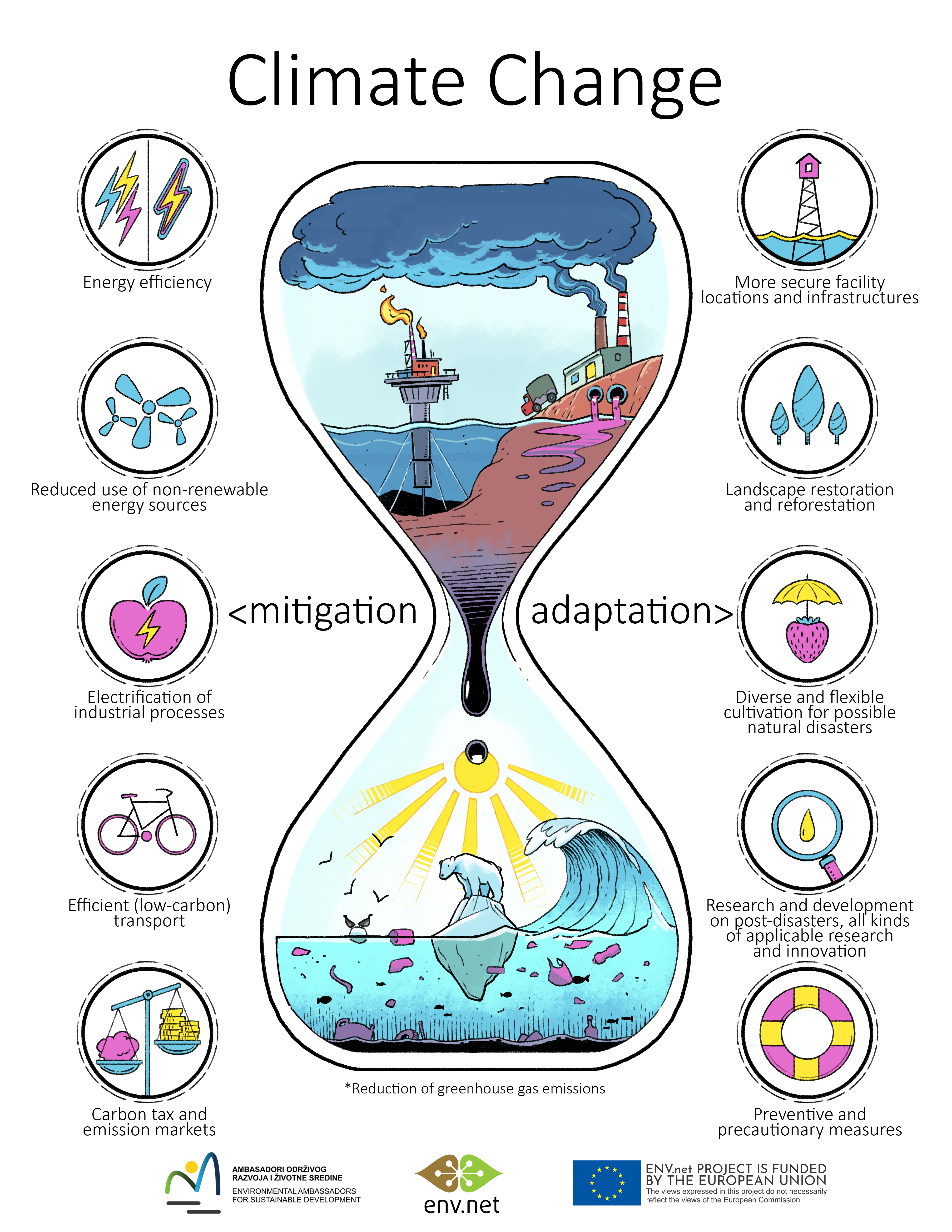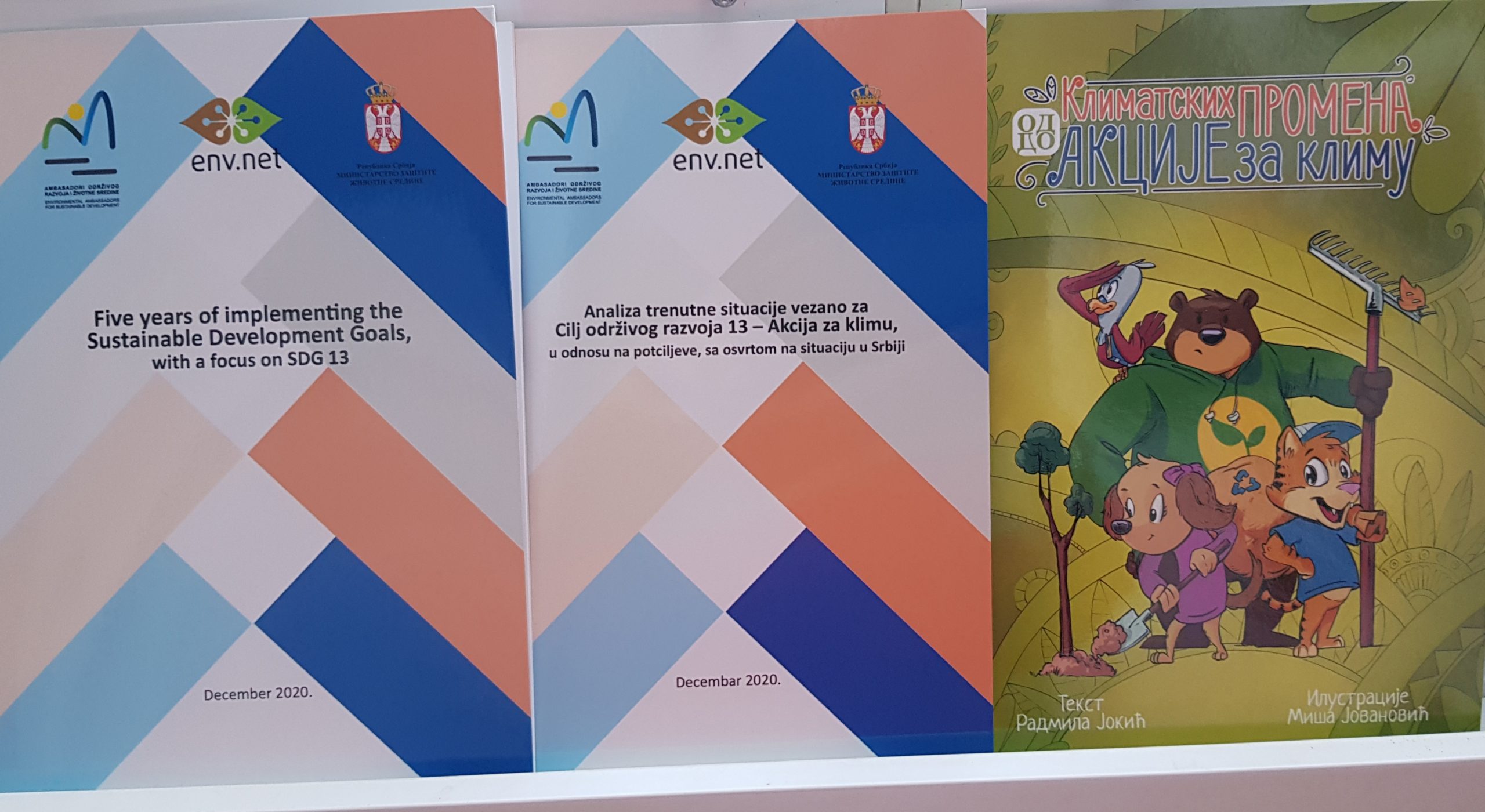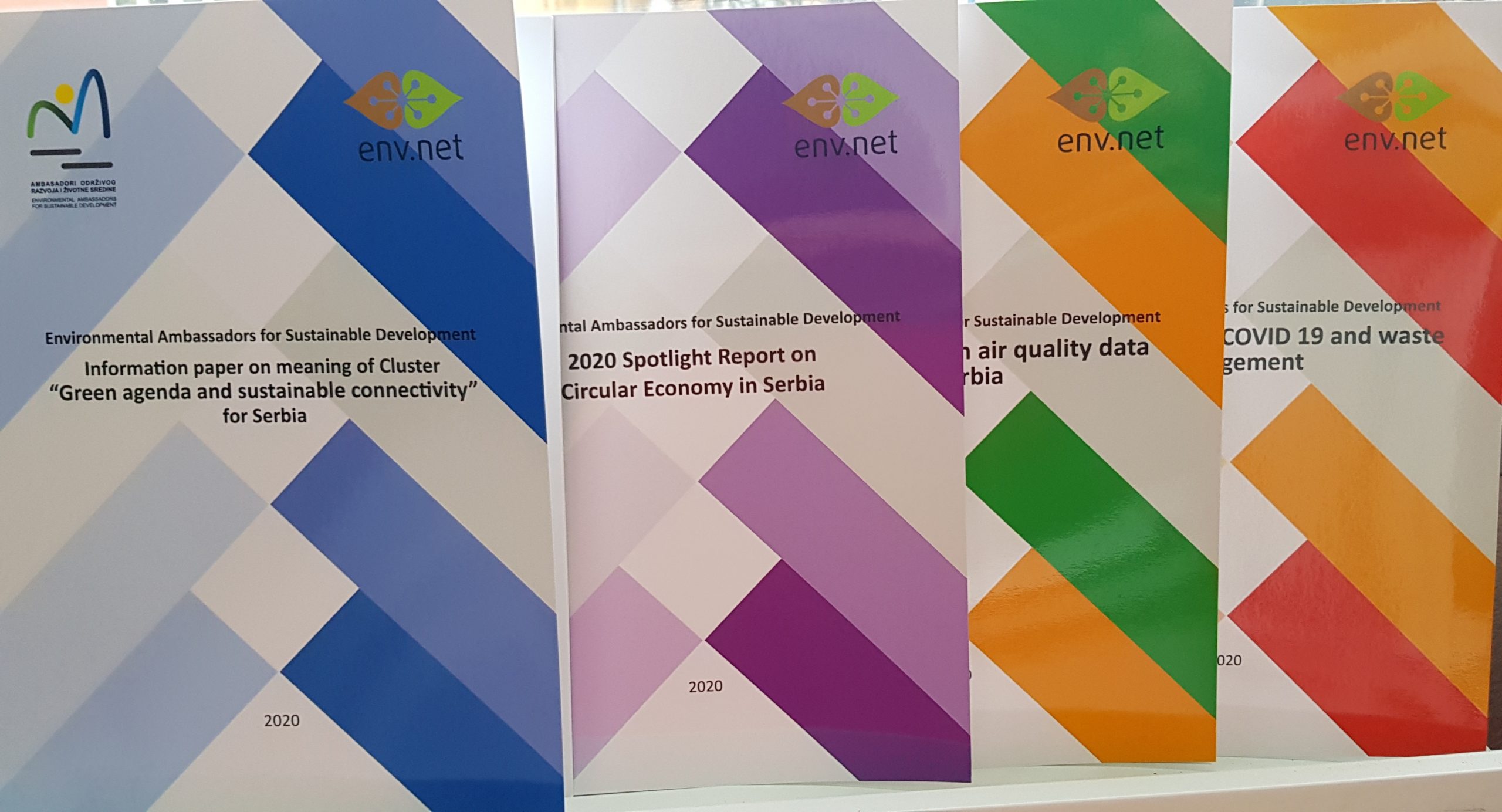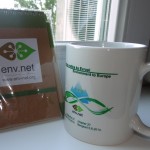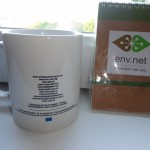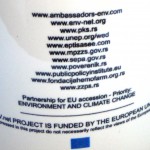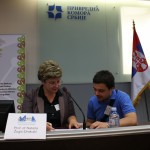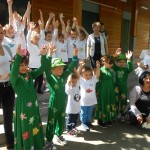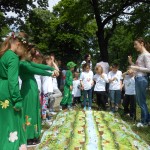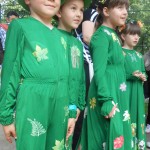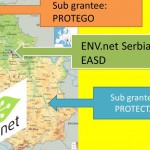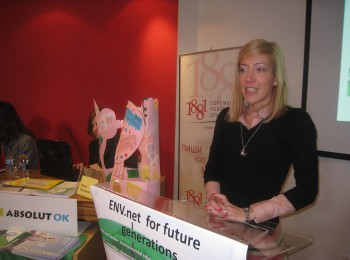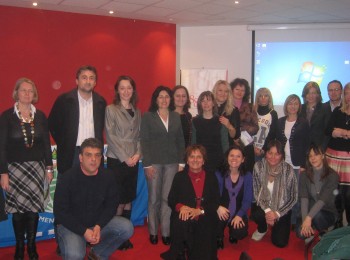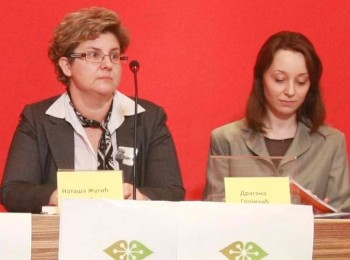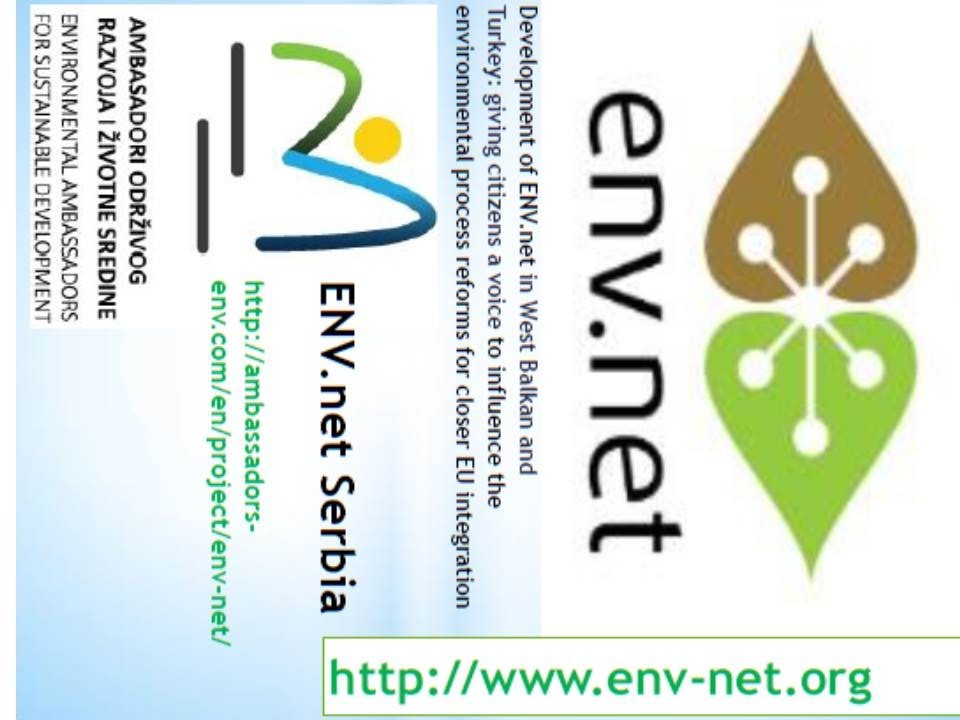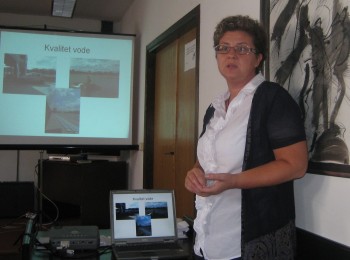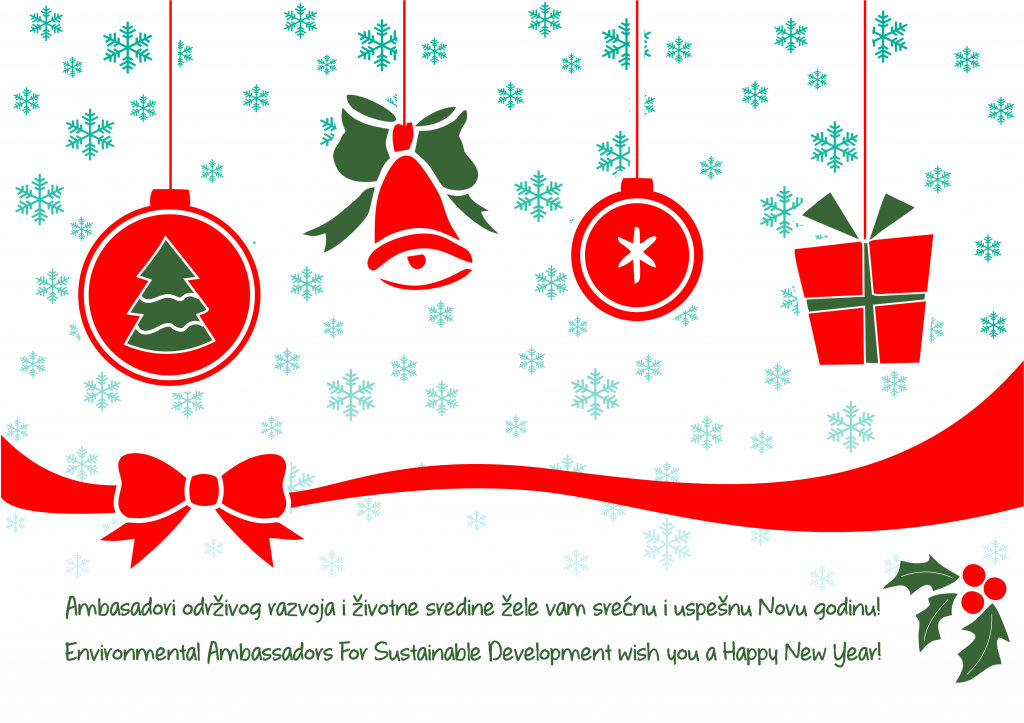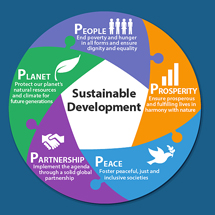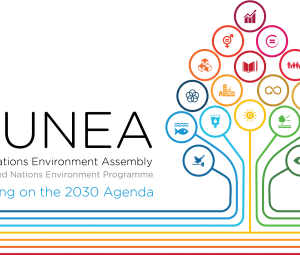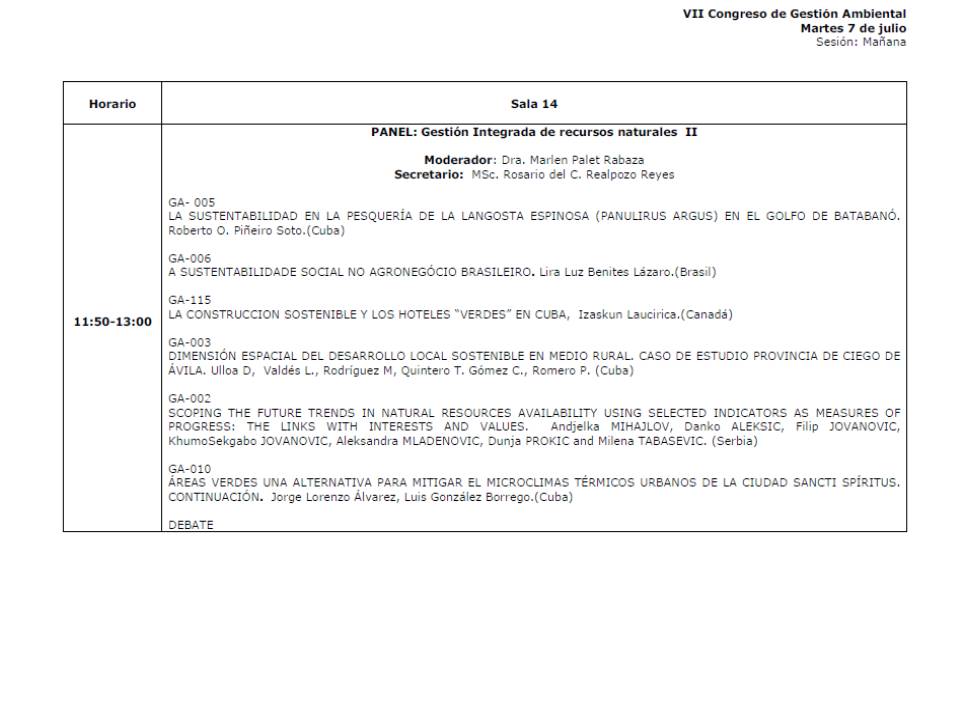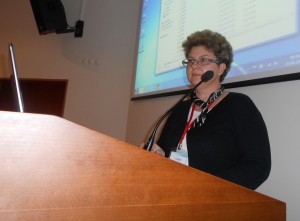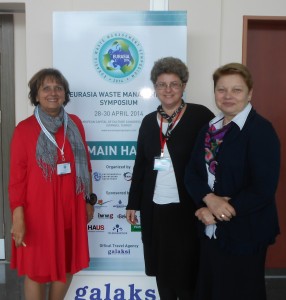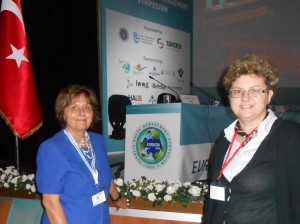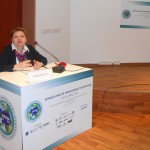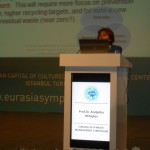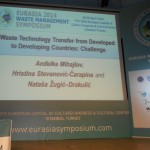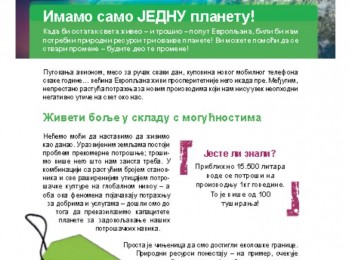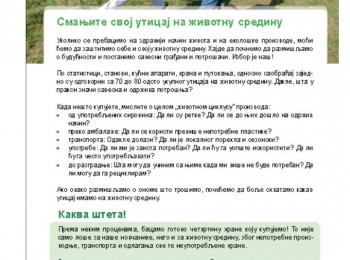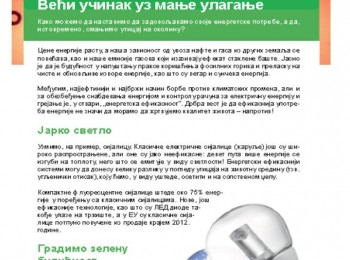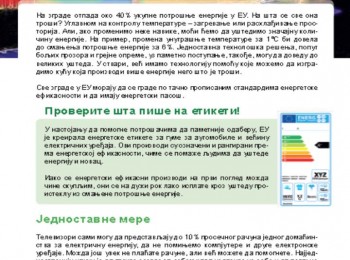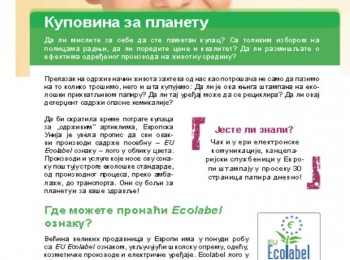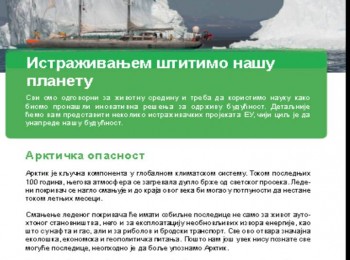4th Meeting of the Intersessional Process for Considering SAICM and the Sound Management of Chemicals and Waste Beyond 2020, Bucharest 2022
EASD is participating at the fourth session of the Intersessional Process for Considering the Strategic Approach to International Chemicals Management (SAICM) and the Sound Management of Chemicals and Waste Beyond 2020 (IP4) in Bucharest , August/September 2022. From Serbia, beside Environmental Ambassadors for Sustainable Development (EASD), NGO Safer Chemicals Alternative – ALHem also participated. A summary report of IP4 by ENB which includes also a brief summary of SAICM’s history as well as of the history of the intersessional process.
As the meeting result Co-Chairs’ consolidated text is achieved. achievement, and resume it in early 2023 at a time and venue to be set by the Bureau in consultation with relevant stakeholders.
The UN General Assembly recently adopted a resolution establishing access to a clean, healthy and sustainable environment, a universal human right. At the same time, recent scientific evidence shows that the global threat of plastic and chemical production has exceeded the “planetary boundaries” for chemical pollution. In addition, the global chemical industry is projected to double by 2030, with rapid growth in emerging economies.
The CEE Region recognizes the need for greater cooperation among stakeholders aiming at strengthening the capacities of developing countries and countries with economies in transition for integrated management and promoting the adequate transfer of cleaner and safer technology. Moreover, great deal of attention should be dedicated to raising awareness of chemicals and waste issues among the responsible institutions, agencies, with improvement of the multi-sectorial and multi-stakeholder cooperation.
EASD position (within IPEN umbrella) is to believe that the SAICM is key to advancing the sound management of chemicals and waste considering human health and the environment. Some of important issues pointed out by IPEN include:
– SAICM is the only instrument we have today to address most chemicals and waste but its goals were not met although progress was made. SAICM should strengthen its open, inclusive, participatory and transparent structure which should be multi-sectoral and multi-stakeholder; From our perspective we need an agreement for a strong SAICM-Beyond-2020 Framework that goes beyond the Dubai Declaration and secures ambitious targets for prevention and reduction of harmful chemicals and waste globally bringing about real change.
– The science-to-policy panel should be a tool to raise awareness about the existing scientific knowledge and allow it to take action on emerging issues and issues of concern that were already agreed upon in SAICM; Also, should also have inclusive participation, allow the consideration of different forms of knowledge including from indigenous peoples, and take into account gender-specific dimensions;
– The scope shall include chemicals and all waste throughout their lifecycle.
– That objectives for the industry involvement and other financial commitments are reflected in targets, indicators, and milestones and that monitoring and reporting instruments track progress on financial objectives of the beyond 2020 instrument.
– The framework must also be accompanied by new and additional, adequate, sustainable and predictable funding accessible to all relevant stakeholders to address chemicals and waste issues. The establishment of a funding mechanism following the model of the Quick Start Programme.
The fourth session of the Intersessional Process for Considering the Strategic Approach to International Chemicals Management (SAICM) and the Sound Management of Chemicals and Waste Beyond 2020 (IP4) focused on:
-targets for the post-2020 instrument; -national focal points; -national implementation plans;-how the instrument should deal with issues of concern;-private sector involvement in financing chemicals and waste management; and -the relationship between the instrument and the science-policy panel for chemicals and waste (SPP) mandated -by the fifth session of the UN Environment Assembly (UNEA5).a vision and principles for the instrument;
-identifying targets for the instrument; -how to choose “issues of concern” that would be targeted by the instrument for focused attention and concerted action;-multi-sectoral partnerships;-funding for the secretariat; and -a proposal for a globally coordinated levy on chemical feedstocks to feed a new international fund on chemicals and waste;
– whether, and how, to refer to the new human right to a healthy environment under the instrument’s section on principles; – a possible measurability structure for indicators; – a possible stocktaking mechanism and online tool; -participation in the proposed governing body—the conference—by representatives from the environment, health, labor and agriculture sectors involved in chemical management and safety issues; and – a proposal for a way forward on how to handle existing SAICM issues of concern under the new instrument.
To note that EASD participate and follow SAICM WG on Governance and Mechanisms to support Implementation (from October 2020, lead to IP4 ).
Delegates considered targets in the compilation of draft recommendations for a new instrument as well as new proposals for targets. They agreed to replace the long list of targets with a more limited set of priority targets, grouped under specific strategic objectives. Discussion centered around which targets to keep, which newly proposed targets to include, and which targets might be merged together. See also a table comparing the SAICM Overarching Policy Strategy, SAICM/IP.4/2/Rev.1 “Compilation of recommendations regarding the Strategic Approach and the sound management of chemicals and waste beyond 2020” and the Outcomes of the Virtual Working Groups
On vision, delegates replaced the proposed phrases in the compilation text with three new ones developed by an informal group:
- “Chemical safety for all”;
- “A toxics free planet. Advancing chemicals and waste safety for a healthy future”; and
- “Healthy Planet and People: Making Our Future Chemical and Waste Safe.”
(to note, EASD support Call to action for a tomorrow without toxics )
We must continue working together towards a sound management of chemicals and waste throughout their life cycle, in order to avoid or minimize adverse impacts on human health and the environment!
UNEP@50 and World Environment Day
EASD is participating in Stocholm@50 preparatory meetings and conference 2-3 June 2022 . Also, celebrate with activities World Environment Day on June 5, 2022 .
Stocholm+50 mandate is to enable resolutions A/RES/75/280 of 24 May 2021 and A/RES/75/326 of 10 September 2021. Stockholm +50 offers an opportunity to reinforce the 1972 principles, opportunity for stakeholders to cooperate, share expertise and address complex issues for urgent actions.
EASD stay with whole-of-society approach; participated at Regional Multi-stakeholder Consultations (for Europe and North America) on May 5, together with different stakeholders, including youth, Indigenous Peoples, governments, and non-governmental organizations, who identified and highlighted some of the key messages, such as need to phase out fossil fuel subsidies in order to transition away from reliance on fossil fuels towards a more sustainable energy resources, or call for a declaration recognizing “the rights of nature,” as well as for governments to recognize “ecocide” as an international crime.
Environmental Ambassadors for Sustainable Development participated in the Regional Forum on Sustainable Development for the United Nations Economic Commission for Europe (UNECE) Region, held in Geneva on 6 and 7 April 2022 . Within the Side Event, together with other partners on the project “Water and Sanitation Safety Planning in the Balkan Region: Albania, North Macedonia, Romania and Serbia (WatSanPlan)”, presented the results of a year of work on the project.
EASD representative also participated at One Planet Network to accelerate the implementation of SDG12: The One Planet Network Forum, taking place 31.5. – 1.6. 2022.
Being a part of strong global and regional networks, EASD is actively contributing to position development of certain issues ( NGO Major Group, Women Major Group, Science and Technology Major Group, IPEN, EEB, WECF). Also, EASD participated on number of Towards Stockholm+ 50 Webinars as well as side events .
EASD also follow national preparation of Serbia, within 3 Leadership Dialogues. On outputs and outcomes of Stockholm+50 see more… Among others, about:
- United Nations Foundation/Unlock the Future Coalition
- Ministerial Statement on Future Generations led by Sweden and signed by other 14 countries
- Global petition for a UN Declaration of Rights of Mother Earth
- The People’s Environment Narrative, Stakeholder Forum for a Sustainable Future and the Norwegian Forum for Environment and Development, with the support of UNEP and the Swedish Government
- Stockholm+50 Interfaith Statement, Faith, Values and Reach – Contribution to Environmental Policy
- The Global Youth Policy Paper
- Declaration for Stockholm+50: Restoring Our Common Home
- Indigenous Peoples and Local Communities Declaration
The 2022 World Environment Day campaign #OnlyOneEarth calls for collective, transformative action on a global scale to celebrate, protect and restore our planet. This year’s campaign, #OnlyOneEarth, highlights the need to reset the balance with nature through transformative changes in how we eat, live, work and move around. This guide presents actions that communities, organizations and people everywhere can take. It spotlights the key responsibility of governments, cities, business, faith groups and finance to make sustainable living possible by transforming consumption, production, infrastructure, investment and land use. It also includes examples of personal decisions to effect change and push for action.
EASD contributed with activities focused on water safety, sanitation and hygiene, which included activities with children with special needs through the Eco-schools program in Serbia, under the knowledge-based campaign “Safety water for all”. The activities are realized during the EU Green week, from May 30th to June 3rd, using this annual opportunity to pay attention of local and national decision and policy makers to support inclusive environmental education, by using knowledge based advocacy. This activity relies on decades of achievements of the event “Environment to Europe”, which EASD organized as part of celebration of the World Environment Day.
IPEN global plastics monitoring project
The aim of the IPEN global plastics monitoring project is to raise awareness locally and globally about hazardous chemicals in recycled plastics used for consumer products. The project targeted recycled plastic pellets of high-density polyethylene (HDPE) sold from small-scale, local operations, since this is one of the most commonly used material for consumer products. These have been analyzed for UV stabilizers, Decabromodiphenyl ether (deca BDE) and PCBs.
Environmental Ambassadors for Sustainable Development participated in the project as IPEN participated organization. The recycling facility EASD used as project site is situated in north-west Serbia, and there are app. 75 employees. The facility was founded 15-16 years ago. 75% of products are for the export, to the Central European Countries (Poland, Czech Republic…). Other 25% is sold to the domestic plastic producers (placed around Serbia), which use these recycled plastic pellets to produce plastic products, but not for food storage.
There are several steps performed to produce recycled plastic pellet, from yield small pieces of plastic (flakes or fragments) to the pellet that is using in next steps of production cycle.
All secondary raw material is used in the recycling process (“zero waste” at the end of the process). They use plastic breakage and waste from its production to make plastic buckets for the construction sector, black colored.
The input plastic is coming from unformal secondary raw collectors, but the large number are also imported.
The samples of plastic pellets were used from the facility and sent to IPEN to be analyzed. The samples were analyzed at the University of Chemistry and Technology Prague in the Czech Republic. More at …..
The results are shown in the study: Widespread chemical contamination of recycled plastic pellets globally.
Presentations:
Widespread chemical contamination of recycled plastic pellets globally
Global plastic pellet samplings – Results and briefing
Press Release:
Further promotion of results:
April 28, 2022 – Participating at Local Round Table in Perlez, municipality Zrenjanin, presenting issues of toxic additives in plastics pellets and IPEN study, as well as capturing synergies between plastic pollution (and with decarbonization and climate change. About 10 people from this small town participated.
Activities of awareness raising in Serbia are posted on site in Serbian language.
Virtually we are in Nairobi: participating at The Global Major Groups and Stakeholders Forum , the fifth meeting of the Open-Ended Meeting of the Committee of Permanent Representatives, Science-Policy Forum and the UN Environment Assembly (UNEA 5.1)
On February 9, 2021, EASD two representatives starts two weeks engagements and participation at: The Global Major Groups and Stakeholders Forum (February 9-11) , the fifth meeting of the Open-Ended Meeting of the Committee of Permanent Representatives (February 15-16), Science-Policy Forum (February 18-20) and the UN Environment Assembly (UNEA 5.1), February 22-23.
We are starting with the consultations considering the following themes: UNEP Mid-Term Strategy, UNEP Program and Stockholm + 50, as well as main messages from Major Groups and Stakeholders to UNEA. To note that Environmental Ambassadors for Sustainable Development is accredited to UNEP participated previously at Regional Consultation Meeting for Europe in preparation for UNEA 5 – RCM for UNEA 5.1, virtual meeting on December 16-17, 2020. Also, EASD was engaged with its preparatory process and exchange views with Major Groups towards UNEA5. This year, Serbian Minister of Environment is Vice President of UNEA.
UNEA 5.1. Messages and selected outcomes:
OUTCOMES OF THE ONLINE SESSION: UNEA-5
Major Groups and Stakeholders Joint Statement to UNEA-5
Statement by the Women’s Major Group
CPR Chair’s Speech on the Report of the OECPR to UNEA-5.1
UN Science-Policy-Business Forum on the Environment ;Event report
…..
Moments from EASD participation at UNEA 4 are available, as well as at Science and Technology Community Meetings and UNEP Network of the Women Ministers and Leaders.
(Our) Berlin Declaration have the quotation in the European Commissions Report
In the Final report on Assessment of the feasibility of phasing-out dental amalgam, on page 32, used Berlin Declaration as the reference, more precisely:
*2017: Berlin Declaration: After a gathering at a two-day Pan-European Summit to plan the end of amalgam, environmental and consumer NGOs, dental associations, Members of the national parliaments and the European Parliament, academics, and industry issued the “Berlin Declaration to End Amalgam Use in Europe in 2020, available at: https://www.ig-umwelt-
Environmental Ambassadors for Sustainable Development expert participated in Berlin Declaration development! EASD lead Initiative in Serbia.
In 2020 the European Commission recommends the phase out of amalgam. In concluding that the end of amalgam is “technically and economically feasible,” the Commission explains in its report (mentioned above) to Parliament and Council.
· The alternatives are fully acceptable, and dentists fully trained to put them in, quoting: “Mercury free materials are nowadays of good quality, effective restoration methods are widely available and dental schools are increasingly teaching the necessary skills”.
· The risk from BPA (present in some but not all composite) is “negligible’;
· The price differential has shrunk so much such that neither patients nor dentists, will be adversely affected by the phase out;
· 95% of amalgam manufacturers also make alternatives hence they are fully prepared to switch;
Therefore the European Commission will propose a legislation in 2022 for a phase out on a date specific, earlier than 2030.
The report of the Commission focuses equally on the international challenge to end amalgam by promising to turn its attention in 2021 to (a) an amendment of the Minamata Convention and (b) international trade rules to stop amalgam trade.
____________________________
November 2020: Our letter to Commissioner (the European Commission and Commissioner for the Green Deal) Frans Timmermans was well-received
Letter, sent at October 26, 2020 :
Dear Commissioner Timmermans,
European civil society salutes you for your landmark decision to recommend the phase out of dental amalgam to the Parliament and the Council.
Dank u wel!
Your decision makes sense for five solid, incontrovertible reasons:
1. Environment: Dental amalgam is the single largest use of mercury in Europe – and unnecessarily so. The European Union’s science committee SCHER calls amalgam a “secondary poison” because its mercury methylates in fish that children then eat.
2. Technology: Over the past decade the alternative materials have surpassed amalgam in effectiveness – and unlike amalgam, they are minimally-invasive and tooth-friendly.
3. Economics: The prototype is here, because in 2018 amalgam was banned for children, pregnant women, and breastfeeding women, and simple changes in insurance and government programs made the transition seamlessly. The same can now be done for the general population. Moldova, the poorest nation in Europe, banned all amalgam use last year.
4. Preparedness: (1) Manufacturers are ready: virtually all of them make the alternatives, so no jobs will be lost. (2) Dentists are ready: all know how to place the alternatives to amalgam and probably half of them have stopped using amalgam altogether. (3) Consumers are ready: in the European Commission’s internet poll before the Mercury Regulation was enacted, 88% voted in favor of an amalgam ban. (4) Member States are ready: 89% of the Member States (24 of 27), encompassing fully 88% of the population, either have phased out amalgam, have announced a phase-out date, or have low to moderate amalgam use already.
5. Synergies with other EU goals: Whether the goal is specific, such as clean water, or general, such as the Green New Deal with the Chemicals Strategy for Sustainability , the route to a toxic-free Europe must include the end of dental amalgam, a primitive device that pre-dates the Franco-Prussian War and can lead to cracked teeth.
We wish to single out and thank your team at the Commission who laboriously and competently shepherded this issue to the end point of recommending the demise of amalgam for Europe: Aneta Willems, Christopher Allen, David Grimeaud, and Jenny-Johanna Green.
We wish to continue to work with the Commission as you craft legislation for Parliament and the Council to phase out amalgam, and we urge you to set a phase-out date of 2025 or sooner.
Good health to you.
Florian Schulze, European Center for Environmental Medicine (Europe), IG Umwelt-Zahnmedizin (Deutschland)
Elena Lymberidi-Settimo, European Environmental Bureau (Europe)
Dr. Claudia Castell-Exner, President of EurEau – European Federation of Water Services (Europe)
Génon K. Jensen – Health and Environment Alliance (Europe)
Laurette Casal & Antoine Lecuyer, Non Au Mercure (France)
Hanna Schudy, EKO-UNIA (Polska)
Sascha Gabizon, Women Engage for a Common Future (Nederland)
Trine Jørgensen, Foreningen mod Skadeligt Dentalmateriale (Danmark)
Andjelka Mihajlov, Environmental Ambassadors for Sustainable Development (Србија)
Ann-Marie Lidmark, Tandhälsoförbundet (Sverige)
Dr. Hanns Moshammer, ÄrztInnen für eine gesunde Umwelt (Aegu) (Österreich)
Dr. Elena Manvelyan, Armenian Women for Health and Healthy Environment (Hayastan)
Monika Frielinghaus, SHV für Umweltgeschädigte e.V. (Deutschland)
Dr. Stefan Dietsche, European Academy for Environmental Medicine (Deutschland)
Lutz Höhne, Deutsche Gesellschaft für Umwelt-ZahnMedizin e.V. (Deutschland)
Susana Fonseca, ZERO – Associação Sistema Terrestre Sustentável (Portugal)
Reinhard Lauer, Bundesverband der Beratungsstellen für Umweltgifte, insbesondere Amalgam, Schwermetalle und Holzschutzmittel e.V. (Deutschland)
Julia Tudare, Intoxication Métaux Nouvelle-Calédonie (Nouvelle-Calédonie)
Graeme Munro-Hall, World Alliance for Mercury-Free Dentistry (United Kingdom)
Dr. David Harvie-Austin, British Society for Mercury Free Dentistry (United Kingdom)
Leticia Baselga, Ecologistas en Acción (España)
Branislav Moňok, Friends of the Earth – SPZ (Slovenská republika)
Dr. Mihaela Cuțui, Timiș College of Dentists (România)
Dr. Claudia Bottino, Metallica_mente (Italia)
ENV.net
ENV.net project consists of ENV.net 1/2 (2012-2016) and ENV.net 3 (2017-2020) projects. EC supported
ENV.net 1/2: ENV.net – Development of ENV.net in West Balkan and Turkey: giving citizens a voice to influence the environmental process reforms for closer EU integration, EuropeAid/132438/C/
ACT/Multi – 2012/306-642 and 2014/351-610; Partners for project implementation are: Puntosud , EASD , Co-PLAN , EEB – European Environmental Bureau, ATRC and TEMA . The project builds on the experience of an EU-funded project, namely the Environment Forum, implemented in the period 2009-2012, aiming at developing capacities of environmental NGOs to establish a constructive dialogue with national authorities. The present project strategy has been designed to achieve a greater commitment and capacity of a group of CSOs coming from Environment Forum experience and which have agreed on the creation of a new network, the ENV.net, to support the civil activism, give citizens a voice and influence the public reform processes in the approximation to the environment acquis. With the view to further enhance their capacities to work with CSOs and to share experience with other European countries, EEB has accepted to participate and to share its experience. Project objective – Greater commitment and capacity of the ENV.net to give citizens a voice and influence public sector reform processes in the environment sector through analysis, monitoring and advocacy. As one of the outcome National ENV.net networks (to complement Regional ENV.net network) were established; established ENV.net Network in Serbia have 54 organizations (multistakeholders).
ENV.net3: “ENV-net factoring the environmental portfolio for Western Balkans and Turkey in the EU Policy Agenda” – EuropeAid/154870/ACT/Multi ; EASD (Serbia) partners for project implementation are: 4X4X4 Balkan Bridges from North Macedonia, European Environmental Bureau from Belgium, Advocacy Training and Resource Center, from Kosovo*, Green Home, from Montenegro, Lir Evolution, from Bosnia and Herzegovina, TEMA – the Turkish Foundation for Combating Soil Erosion, for Reforestation and Protection of Natural Habitats, from Turkey and Foundation Punto,Sud, from Italy. The project contributes to the improvement of environmental policy-making and implementation in compliance with the EU standards. To this end, the network foresees to contribute to both improved and intensified inter-action among actors (including environmental CSOs, media and policy-makers) and an overall more enabling technical and financial environment where these actors operate. The action sets out to strengthen the profile of ENV.net as the leading network and bridging actor in environmental policy-influencing in the WB and Turkey region (vis-à-vis EU). Further, it foresees introducing and initiating a discussion on the Circular Economy concept in the region, as well as intensifying climate change actions. The action also foresees a number of value-adding, cross-cutting elements such as inter-partner learning/exchange, networking, and thematic organisational support to third parties (i.e. local grass-root organisations, media).
____________________________________
Paper published: Andjelka Mihajlov, Aleksandra Mladenovic & Filip Jovanovic, Contribution to Environmental Communication: comparative analysis of two qualitative methods as the performance to European Union accession, in “Adapt to Survive. The role of social media, sharing and communication to ameliorate this world “, Conference Proceedings Book Edited by Margarita Kefalaki, Communication Institute of Greece (COMinG),Athens, p.57-66 , 2021 ( ISSN: ISBN: 978-618-85622-3-3 ), Available at https://coming.gr/wp-content/uploads/2021/12/1_1_2021_Adapt-to-survive_Book_conf-proceedings_COMinG.pdf
Selected activities:
March 2021:
Information paper on Climate Change and Energy
Information paper on Climate Change and Floods
August 2021: Environmental Communication: Media Archive Reports as a Participant Science Tool
Promotion by media (Da li smo spremni za sve češće poplave?)
December 31, 2020: ENV.net3 project final steps – infographics with documents developed by EASD
____________________________________
Report on monitoring the progress of national environmental legislation (Chapter 27) in 2018, 2019, and half-year 2020, with projections through end-2020 / Izveštaj o monitoringu napredovanja nacionalnog zakonodavstva o životnoj sredini (Poglavlje 27) u 2018., 2019. i prvoj polovini 2020. godine, sa projekcijom do kraja 2020.godine (Extended abstract in English, Full text in Serbian)
Position Paper on COVID 19 and waste management
Circular Economy goes beyond Waste Management presented at EurAsia Waste Management Symposium 2020
Information paper on meaning of Cluster “Green agenda and sustainable connectivity” for Serbia
Reflection paper on air quality data for Serbia
2020 Spotlight Report on Circular Economy in Serbia
EASD publication on circular economy acknowledged by European Circular Economy Stakeholder Platform
Virtual tour on the experience from Italian practices in circular economy
November 2020: Joint civil society statement for Sofia Summit
EASD research presented at EurAsia Waste Management Symposium
October 2020, New Momentum for the Environmental Agenda in the Western Balkans and Turkey?
Establishment of the South East European Platform to Beat Pollution – SEEPP
Recap the moments from EnE19/ENV.net Conference
March 2019: UN Environment : 4th Assembly (and pre- and side-events) , ENV.net related event
November 2018: To report: The first Regional Conference on Circular Economy was success ; The first regional conference on circular economy, Belgrade, November 2018: Agenda
Call for sub-grants (6.novembar 2018: Otvoren poziv za dodelu sub-grantova u okviru ENV.net projekta)
YRE competition: apply before February 1, 2019.; Theme: Energy Efficiency
ENV.net Initiative: to update National Strategy on Sustainable Use of Natural Resources and Goods, by applying Circular Economy concept ; ENV.net Initiative and Knowledge based advocacy: to update National Strategy of Sustainable Use of Natural Resources
Circular economy knowledge based advocacy in Eco-schools network in Serbia
May 2018. Guest lectures made at two Universities in Serbia: “Circular economy is concept and process, and still not full circle” ; Participation at the Green Parliamentary Group meeting
Follow project at : facebook.com/envnetsite/ and www.env-net.org
February 2018 – ENV.net 3 Kick-off Meeting in Tirana
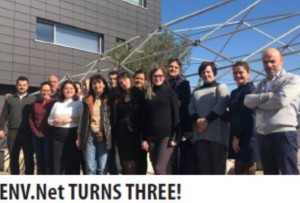 ________________________________________________
________________________________________________
In December 2017. we started with ENV.net 3 : ENV-net factoring the environmental portfolio for Western Balkans and Turkey in the EU Policy Agenda (reference number 2017/394-372)
ENV.net 3 – Serbia team include: Aleksandra Mladenovic –National Coordinator and Manager. In addition, Thematic experts/consultants, on demand, are Prof dr Andjelka Mihajlov and Filip Jovanovic, and Media communication expert, on demend, is Milica Momcilovic.
________________________________________________________________________________
Development of ENV.net in West Balkan and Turkey: giving citizens a voice to influence the environmental process reforms for closer EU integration – EuropeAid/132438/C/ACT/Multi – 2012/306-642 and 2014/351-610 (2012-2016)
The project builds on the experience of an EU-funded project, namely the Environment Forum , implemented in the period 2009-2012, aiming at developing capacities of environmental NGOs to establish a constructive dialogue with national authorities. The present project strategy has been designed to achieve a greater commitment and capacity of a group of CSOs coming from Environment Forum experience and which have agreed on the creation of a new network, the ENV.net, to support the civil activism, give citizens a voice and influence the public reform processes in the approximation to the environment acquis. With the view to further enhance their capacities to work with CSOs and to share experience with other European countries, EEB has accepted to participate and to share its experience. Project objective – Greater commitment and capacity of the ENV.net to give citizens a voice and influence public sector reform processes in the environment sector through analysis, monitoring and advocacy.
Partners for project implementation are: Puntosud , EASD , Co-PLAN , EEB – European Environmental Bureau , ATRC and TEMA . EASD Activity circles represent the scope of our activities.
Project launched site for presentation of activities in all participating countries, as well as facebook page and ENV.net Newsletters.
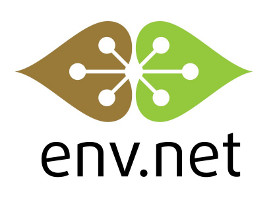 ENV.net 1/2– Serbia team include: Dr Nataša Žugić Drakulić –National Coordinator and Filip Jovanović – project manager , chosen in transparent process by „ Environmental Ambassadors for Sustainable Development“, partner organisation in this project. In addition, National consultant for European integration is Prof dr Andjelka Mihajlov , dr Hristina Stevanović Čarapina is leading expert .
ENV.net 1/2– Serbia team include: Dr Nataša Žugić Drakulić –National Coordinator and Filip Jovanović – project manager , chosen in transparent process by „ Environmental Ambassadors for Sustainable Development“, partner organisation in this project. In addition, National consultant for European integration is Prof dr Andjelka Mihajlov , dr Hristina Stevanović Čarapina is leading expert .
__________________________________
ENV.net Serbia network is functioning : Some of activities could be followed only in Serbian, like calls to participate, and other actions targeted to citizens in Serbia.
**************************************
Highlights: ENV.net publications
- A Guideline of EU Accession Monitoring Tools for CSOs in candidate and potential candidate countries: Chapter 27, (Authors and contributors: Andjelka Mihajlov, Natasa Zugic-Drakulic, Filip Jovanovic, Federico Bastia, Simona Pogliani, Mara Silina, Teida Shehi and Dusko Hristov), Published by Environmental Ambassadors for Sustainable Development with the financial assistance of the EU – ENV.net project document, Belgrade January 2015
- How to influence environmental policy through effective advocacy (Authors: Margherita Tolotto and Mara Silina), ENV.net Advocacy Toolkit, European Environmental Bureau, Brussels, January 2015
- Climate change and challenges of the enlargement (Authors: Anja Kolmuss, Dragana Mileusnic, Zanna Vanrenterghem and Richard Filcak), ENV.net Advocacy Toolkit, European Environmental Bureau, Brussels,September 2016
June 2016: Agenda, WED Messages from Serbia: 12th Regional Conference “Environment to Europe” , REPORT FROM EnE16-ENV.net, BELGRADE, SERBIA
April 2016 – ENV.net Course: CSO Participation in Accession Process , Chapter 27: CSOs participation
March 2016 – New internet portal: Greenweb
January 2016 – Save the date for EnE16-ENV.net Conference ; We participate: Regional Conference: „Sustainability of the FPAs” , Brussels . Water-food-energy-ecosystems nexus assessment in the Sava River Basin – Lessons learned and further steps
October – December 2015 – Ministry support to ENV.net , Event
October – Partnership for Climate Change issue : Serbia’s climate talks – on the way to Paris
June 11 – European Commission Vice-President Mr Maroš Šefčovič had meeting with CSOs in Belgrade. EASD participate!
June 7 – Bicycling-ENV.net promotion in town Gornji Milanovac , Green day in Gornji Milanovac
June 5 – Regional Conference ”Environment to Europe” EnE15 – ENV.net EU Environmental Horizontal Legislation: Methods, Standards and Tools , Invitation , AGENDA , Proc. of papers
May 26, 2015 – Promotional activity
April 21, 2015 – Participation in Public Hearing on Climate Change related challenges in Republic of Serbia
April – THE ELEVENTH REGIONAL CONFERENCE ENVIRONMENT TO EUROPE – ENE15 – ENV.NET acknowledged as the European Sustainable Development Week event
March 22 – Celebrating the World Water Day in Serbia: field visit to Ada Ciganlija
February 2, 2015: Invitation for EnE15-ENV.net Conference launched
January 29, 2015: A Guideline of EU Accession Monitoring Tools for CSOs in candidate and potential candidate countries (ENV.net region): Chapter 27 , document finalized
January , 2015: Promotion of Publication
December 31: Thematic Publication “Environment to Europe”, 2014 ( Tematski zbornik radova “Životna sredina ka Evropi”)
December 12: ENV.net Serbia Seminar: Environmental Education in Schools
November 24-25, ENV.net on the margins of ECF Annual Meeting in Brussels with European Commision
November 4-5 , Regional training on the process of designation of potential Natura 2000 sites
October 30 – Conference “EU accession in the field of environmental protection and the role of local authorities”
October 28 – Ministry of Agriculture and Environmental Protection is co-funded ENV.net project , contract signed
October 22-23, Belgrade: ENV.net training: “EU project design process and Implementation of environmental policy”, Invitation , Agenda , Training
October 2014 – ENV.net brochure published and presented
October 14 – ENV.net related: Participation on Conference “Eco-standards and Education”
October 8 – “Little progress has been made in the areas of environment and climate change”
September 29 – ENV.net Round-table Dialogue for Green Future (ENV.net okrugli sto sa niškim srednjoškolcima “Dijalogom ka zelenijoj budućnosti“) (sub-grant)
September 23-25, Brussels: ENV.net preparatory partnership meeting and Framework Partnership Agreement (FPA) Closing Event for Phase I
September 19-24 , We are following Explanatory Screening for the Chapter 27
August 29 – ENV.net (sub-granting) publication published PUBLICATION : “Species of plants and animals of special conservation concern in EU” , in Serbian
July 27 – Partnership with media – Radio Beograd 2
June 19 – Eco-package initiative as the example environmental education for the future EU citizens
June 5 – CONFERENCE , ENV.net multi-stakeholder Conference on Chapter 27: about 200 participants
June 4 – Meeting with media , Moments from the Conference for Media
May 29, 2014 – ENV.net Serbia Conference organisation on the good track –Agenda for EnE14/ENV.net Conference “Environment to Europe”, June 5, 2014 in SCC – opening at 10:00
May 22-24, 2014 – 4th Partners Meeting in Milan
May 13, 2014 – European Solar Days – participation in promotion of EU environmental values
May 10, 2014 – ENV.net Let us clean up Europe! event: Ada Ciganlija Beograd ; ENV.net Serbia with children, parents and teachers “cleaning up Serbia” , Event in pictures
May 22-24, 2014 – 4th ENV.net Partners Meeting in Milan
May 7-8, 2014 – Some of ENV.net Partners meet in the corridors of ECRAN ECF Meeting
April 25, 2014 – UNEP acknowledged EnE14-ENV.net 2014 Conference as the World Environmental Day Event
April 5, 2014 – Education for future citizens of EU: guest lecturing at the Law Faculty
April 4, 2014 – EU Delegation to Serbia: Consultative Meeting with CSOs on progress towards EU in 2014
Aprl 4, 2014 – We participated to the meeting related to EU-Serbia Civil Society Joint Consultative Committee – JCC
April 2, 2014 – ECRAN NGOs Environment and Climate Change Forum – Evaluation Outcome – Congratulation to ENV.net partners!!!!
April 1, 2014 – Protego and Protecta sign subcontracting contracts
Marc 20-9, 2014 – EASD written contribution to the 2014 Progress Report
March 25, 2014 – Participation on UNECE consultation related to the 3rd EPR for Serbia
March 23, 2014 – ENV.net sub-grants winners announced , ENV.net
March 20, 2014 – We participate on Panel at Faculty of Organisation Sciences – University of Belgrade : Knowledge about Environment
March 9, 2014 – Technical (formal requests) evaluation of sub-grants application finished: 45 projects eligible for further evaluation
March 6, 2014 – Promotion of global activity EARTH HOUR (Marh 29, 20:30-21:30) and call for participation
March 4-6, 2014 – We participate in Zagreb on Workshop on Water-Food-Energy-Ecosystems Nexus Assessment in the Sava River Basin
From February 2014 – EU negotiation process: we are following explanatory screenings
February 26, 2014 – In accordance with procedure, QUESTIONS by potential applicants with our ANSWERS are posted on web site on February 26, at 07:00 , taking in account questions received by February 25 at 23:59
February 20-21, 2014 – EASD-ENV.net Serbia participated in defining the first strategic framework for CSOs development
February 18,2014- Knowledge based advocacy: Environment should be within priorities in the negotiations with EU
February 13, 2014 – Environment in youth policy in Serbia
February 12, 2014 – Meeting with ENVAP2 Project representatives
February 7, 2014 – Participation on Training related the Sector Planning Documents – SPDs
February 1, 2014 – Call of proposals for ENV.net sub-granting in Serbia “EU: we watch and learn to be ready!”
January 30, 2014 – Participation on public hearing by the European Economic and Social Committee (EESC) Study Group
January 30,2014 – Thematic meeting of the SECO mechanism on IPA II programming
January 30, 2014 – Participate in the Mapping of CSOs and other stakeholders in in the process of EU accession negotiations
January 19, 2014 – EASD / ENV.net Team reading of European Parliament Resolution, January 2014
January 07, 2014 – Starting preparation for ENV.net 2014 Round-table / Conference
January 2, 2014 – Attention to ENVIRONMENT in EUROPA DAIRY
_______________________________________________________________
December 23, 2013 – Workshop on environmental values for kindergarten children from Sombor (Minutes) , Participation on meetings in Nature Protection Institute and Agency for Environmental Protection
Decembar 20, 2013 – In media : Promotion of knowledge based information
December 20, 2013 – Environmental Education for future EU citizens , Minutes
December 17, 2013 – ENV.net region news: European Affairs ministers give green light to Serbia’s EU negotiations
December 16, 2013: Workshop for strategic planning of further work SECO mechanism
December 3, 2013 – ENV.net presented to the master students of Faculty of Security Studies
December 2, 2013 – Eye on EU integration process: Parliament of Serbia , Eye on SEE regional cooperation
November 28, 2013 – Meeting FPA project grantees with DG Enlargement representative
November 25, 2013 – Partnership with Media : Partnership agreement with Journalist’ Association of Serbia
Environmental Education of future EU citizens: Activity on November 19,2013
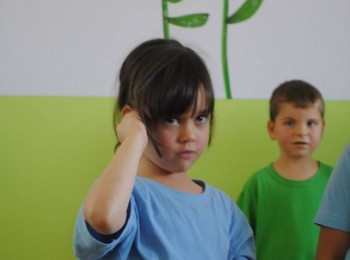 |
Acknowledging the outreach of ENV.net Survey and ENV.net 2013 Roudtable recomendations, EASD – ENV.net Serbia recognized importance of children/youth education for active EU citizenship , through promotion of EU environmental values. We would like to share moments from kindergarten “Pčelice”, from village Šetonje, as promotion event for environmental values in education. With children and teachers, as well as EASD Team, there were Prof dr Ivica Radovic and mr Ljubiša Antonijević, assistant ministers for education and science. |
Partnership with municipality – On November 18., 2013, ENV.net project presented on the Round table in Municipality Vračar (within City of Belgrade).
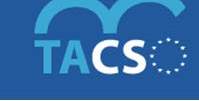 Cooperation with TACSO Serbia – On November 15. 2013, in Belgrade, TACSO Advisory Committee (LAG) organized a consultative meeting with representatives of civil society organizations and networks and Serbian civil society expert community. At the meeting a draft of a document on the assessment needs of civil society in Serbia was discussed.
Cooperation with TACSO Serbia – On November 15. 2013, in Belgrade, TACSO Advisory Committee (LAG) organized a consultative meeting with representatives of civil society organizations and networks and Serbian civil society expert community. At the meeting a draft of a document on the assessment needs of civil society in Serbia was discussed.
 EASD prepared Opinion and contribution to the Draft Strategy Paper for the Republic of Serbia 2014-2020. Through SECO mechanism opinion is sent to Governmental Office for European Integration. Opinion is based on Serbia 2013 Progress Report and Strategy – Reading by ENV.net Serbia Team .
EASD prepared Opinion and contribution to the Draft Strategy Paper for the Republic of Serbia 2014-2020. Through SECO mechanism opinion is sent to Governmental Office for European Integration. Opinion is based on Serbia 2013 Progress Report and Strategy – Reading by ENV.net Serbia Team .
Organisation capacity building process: EASD acknowledged becoming IPEN network Participating Organization
Eye on environmental laws changes: monitoring compliance with EU directives
November 2013. – The third ENV.net partnership meeting in Milan
28. October – Meeting with European Parliamentarians
ENV.net Serbia Team prepared document: Reading of 2013 Progress Report for Serbia and Strategy by ENV.net Serbia Team ( Serbia 2013 Progress Report and Strategy – Reading by ENV.net Serbia Team ).
____________________________________________________
22. and 23 October – Education on sustainable management of lead/chemicals
October 18 – EC Delegation in Serbia, present to relevant CSOs, on October 18, 2013 , Serbia Progress Report 2013, in which the Commission services present their assessment of what Serbia as the candidate country has achieved over the last year.
October 2013 : Participated on different events organized to raise awareness to EU approximation environmental challenges.
Promotion of ENV.net facebook page!
October 2, 2013 – ENV.net team participated at the First SEE Regional Science Promotion Conference (SCIPROM), opened in Belgrade, with the aim to bring together science promotion professionals, practitioners and enthusiasts to share experience and network in order to strengthen the link between science and society in our Region. In the current competitive global environment it is an imperative to enhance economic and social capacities by improving the educational structure of society, inspiring innovation and technological advancement and creating a milieu for appreciation of the value and benefits of knowledge. In the opening address, Minister for Education, Science and Technology development of Serbia underlined, among others the importance of knowledge based actions, as well as the importance of drinking water for development. Conference bring international experts and representatives of international organizations, research and educational institutions, science camps, science communicators, NGOs, private sector and media on board.
This conference justify the path of ENV.net Serbia implementation and development, linking European Integration, Knowledge based activities and sectors : Education, Science and Environment/Natural Resources.
____________________________
Waste management and water management are considered as two important segments of environmental acquis and studies in this area represent an important aspect of ENV.net project. Environmental accession status of Serbia ( waste , water and EIA thematic issues) was presented by EASD team at International Conferences in Vienna (Austria) and Zadar (Croatia), as well as on chemicals at SAICM Regional Meeting (Skopje, Macedonia FYR).
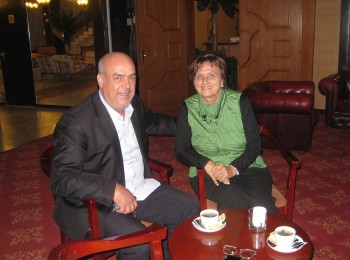 In addition, possible ENV.net partnerships are discussed with other participants and interested CSOs.
In addition, possible ENV.net partnerships are discussed with other participants and interested CSOs.
In Skopje, EASD representative met Macedonian 4x4x4 BB representative on September 26, 2013, to discuss possible enlargement of ENV.net project to Macedonia.
________________________________________
Promotion of ENV.net site in place Join us!
Added value for ENV.net Serbia is EASD activities within the development of Post-Rio+20 Agenda.
Office for Cooperation with Civil Society organized on September 6, 2013 Conference devoted to negotiating Chapter 27 (Environment). Presentation (in Serbian) from the Conference includes: Poglavlje 27 pregovori, Iskustvo R Slovenije, Natura 2000 Ministarstvo, Uloga civilnog drustva u monitoringu, Natura 2000 NGO )
September 2013: ENV.net project presented in the Ministry of Education, Science and Development of Serbia (Meeting of the National Committee for Environmental Education Programs)
August 2013. – Snapshot analysis : While waiting for EC 2013 Progress Report
___________________________________________________________________
Message from our 14 NGOs to Brussels: End amalgam use!
To the European Commission:
The transition to 21st –century dentistry – mercury-free and minimally-invasive – has substantially occurred across Europe. Now the imprimatur of government is necessary to complete the process to the benefit of all Europeans.
The past decade in Europe has witnessed a historic and drastic shift from amalgam to mercury-free dentistry: (a) by dentists in their clinics, (b) by consumers in their choices, (c) by manufacturers in their productions, (d) by scientists in their conclusions, and (e) by European Member and Non-Member States in their policies.
For the second time, the Commission’s consultant recommends an end to amalgam, the first being BIOIS in 2012. At that time, Europe was not yet ready. But since 2012 has come a torrent of developments that show, definitively and manifestly, that Europe stands ready for the E.U. to take the necessary steps to complete the transition to mercury-free dentistry.
2013: Manufacturers shift to welcoming the end of amalgam. The European Dental Materials Conference, announcing “the increasing likelihood . . . of a significant reduction or complete ban on the use of amalgam in the near future,” held its conference in Birmingham with the theme “The Demise of Amalgam.” The manufacturers welcomed the shift as an opportunity to make and market modern alternatives to amalgam.
2014: European public votes over 85% for the end of amalgam. The European Commission conducted an internet poll to determine public opinion about mercury issues. Twice as many Europeans voted on the amalgam issue than on the other questions (meaning half of them voted only on amalgam and exited the poll), and voted by more than 6 to 1 to end its use. By the high number of voters only on amalgam, the poll showed that the single biggest issue of concern on mercury was dental amalgam – and that its end was drawing almost universal support.
2014: SCHER adds major support to the environmental argument to ban amalgam. The environmental health scientists used the chilling term “secondary poisoning” to describe the process of dental amalgam getting into the fish, methylating, then being eaten by European children, the subpopulation most susceptible to permanent neurological harm.
2015: SCENIHR changes its position to disfavor amalgam. Reversing the robust support for amalgam in its 2008 report, the health scientists not only recommended an end to amalgam right away for children and pregnant women, but upon a question from Norway, withdrew its claim that amalgam is “safe,” retreating to the discomforting claim that it is only “effective.”
2016: Parliament calls for complete phase-out. The ENVI committee of the European Parliament votes for a total phase-out of dental amalgam, then began negotiations with Council of Europe for a consensus solution.
2017: EU Mercury Law was enacted, with its strong amalgam provision. Implementation of the phase out comes in three phases: the virtual ban for children under 15 and for pregnant women, and breastfeeding women in 2018; the mandate for each Member State to submit a further phasedown plan in 2019; and the Commission to recommend a route to a phaseout, and a date, in 2020.
2017: Berlin Declaration: Gathering at a two-day Pan-European Summit to plan the end of amalgam, environmental and consumer NGOs, dental associations, Parliamentarians, academicians, and industry issued the “Berlin Declaration to End Amalgam Use in Europe in 2020.”
2018: Partial amalgam ban begins. Without noticeably less resistance from the shrinking number of dentists still using amalgam, with insurance shifts in the largest Member State Deutschland, and with smooth implementation even in former oppositional Member States like the U.K., the virtual partial ban begins.
2019: Four Member States joined Sweden in deciding to phase out amalgam: Slovakia, Czech Republic, Ireland, and Finland. Three of these are high amalgam users, a signal to the other three remaining high users (Slovenia, Greece, and Poland) that they too can phase out amalgam. The high users not yet phasing out r epresent only 11% of the Member States with (coincidentally) only 11% of the post-Brexit population.
2019: Full amalgam ban on French territory: the self-governing territory of Nouvelle-Calédonie adopts an absolute ban in September 2019. France Metropolitan also has changed drastically; the biggest user of amalgam in 2012 (says the BIOIS report) is now at the lower end of Member States users as a percentage,
2019: Lowest income country in Europe bans amalgam. Demonstrating that the end of amalgam is not a question of money, Moldova enacts a law ending amalgam use.
2020: Almost three-quarters of the Member States (17/27) are either under 10% use or have filed a plan to phase out amalgam. Environmental rules can never wait for 100% support; the 70% support far surpasses any of the complicated weighted voting systems.
2020: European stakeholders coalesce around ending amalgam use. For example: “From the point of view of the EurEau, the European Federation of Water Services, we have consistently favoured a phase out of dental amalgam according to the Swedish model. “
Amalgam placement requires removal of more tooth tissue, in sharp contrast to today’s technology: the alternatives are minimally-invasive, tooth-friendly, and contribute to cavity prevention. This primitive, tooth-unfriendly pollutant – dating to the era of Napoleon III, Garibaldi, and Bismarck – has no place in 21st century dentistry.
The Council of European Dentists — the last holdout for mercury fillings — is a lobby group for the polluters: the dentists benefitting from a system that lacks the “polluter pays” principle. If the polluter paid, the real cost of amalgam would be prohibitively expensive. Here is the largest use of mercury in Europe – being subsidized by European governments who today pay the bill (the polluters skate) for the dangerous, far-reaching environmental releases wrought by dental amalgam.
Paying the heaviest prices are the children of Europe who, are at manifest risk of neurological damage when dental mercury is released into the environment, e.g., from the fish or vegetables they eat. Certainly the health and safety of European children are more important than the inconvenience for some older dentists to switch to mercury-free dentistry.
In contrast to many environmental decisions, the end of amalgam means more jobs for European workers, because Europe specializes in making minimally-invasive modern fillings, not in making amalgam.
All of the players, the stakeholders, including the majority of dentists and including three-fourths or more of the Members States, are ready – now – for mercury-free dentistry for Europe.
Sincerely,
Laurette Casal & Antoine Lecuyer, Non Au Mercure (France)
Hanna Schudy, EKO-UNIA (Polska)
Sascha Gabizon, Women Engage for a Common Future (Nederland)
Trine Jørgensen, Foreningen mod Skadeligt Dentalmateriale (Danmark)
Florian Schulze, European Center for Environmental Medicine (Deutschland)
Andjelka Mihajlov, Environmental Ambassadors for Sustainable Development (Србија)
Ann-Marie Lidmark, Tandvårdsskadeförbundet (Sverige)
Dr. Hanns Moshammer, ÄrztInnen für eine gesunde Umwelt (Aegu), (Österreich)
Dr. Elena Manvelyan, Armenian Women for Health and Healthy Environment(Hayastan)
Monika Frielinghaus, SHV für Umweltgeschädigte e.V., (Deutschland)
Susana Fonseca, ZERO – Associação Sistema Terrestre Sustentável (Portugal)
Reinhard Lauer, Bundesverband der Beratungsstellen für Umweltgifte, insbesondere
Amalgam, Schwermetalle und Holzschutzmittel e.V. (Deutschland)
Julia Tudare, Intoxication Métaux Nouvelle-
Charlie Brown, World Alliance for Mercury-Free Dentistry (USA)
14 February 2020
2018!…..With activity highlights from 2017!
Activity important milestones in 2017
EASD activities are focused to 3 thematic groups:
- Promoting sustainable development; Agenda 2030 and SDGs;
- Environment and Natural Resources; Climate action; Advancing policy integration ; Advancing science/technology/innovation integration; Environmental Security and Justice;
- Building partnerships; Raising awareness on emerging issues; Working with civil society and non-state actors
Promoting sustainable development; Agenda 2030 and SDGs:
Initiative: End mercury use in dentistry by 2022, civil society challenge European Union
EASD participate at UNEA3, Nairobi, Nov-Dec 2017
EASD participate: Summit to Plan the End of Amalgam in Europe 2017– November 20-21, Berlin
EASD participate: IPEN Regional meeting, Prague 16-20 October 2014
“Make Mercury History” – EASD participated at Minamata COP1 in Geneva
Climate Change Education for Sustainable Development
2017 International Year of Sustainable Tourism for Development
EASD participate at 2017 Vienna UN Conference – Implementing the 2030 Agenda
Environment and Natural Resources; Climate action; Advancing policy integration ; Advancing science/technology/innovation integration; Environmental Security and Justice:
Initiative: End mercury use in dentistry by 2022, civil society challenge European Union
Good signal: Serbia gets (again) separate Ministry of environmental protection
Climate Change Education for Sustainable Development
“EnE17 – The 13th Regional Conference Environment to Europe” announcement: Climate Change Education
Building partnerships; Raising awareness on emerging issues; Working with civil society and non-state actors:
Initiative: End mercury use in dentistry by 2022, civil society challenge European Union
EASD participate at UNEA3, Nairobi, Nov-Dec 2017
EASD participate at 2017 Blue Flag National Operator Meeting
Eko-paket – Eco-Schools annual conference for the school year 2017/2018
EASD participate: IPEN Regional meeting, Prague 16-20 October 2014
EASD become the Member of the Western Balkans Youth Cooperation Platform!
Civil Society Forum in Trieste, 11-12 July 2017 – we (EASD) participate
Good signal: Serbia gets (again) separate Ministry of environmental protection
Serbia: Blue Flag 2017 Ceremony at beach on “Belgrade Sea”
EnE17 Conference and Panel in Media
Mercury Initial Assessment in the Republic of Serbia Workshop – we participate
EASD participate at 2017 Vienna UN Conference – Implementing the 2030 Agenda
The 2017 ACUNS-UN Vienna Conference—hosted by the United Nations Office on Drugs and Crime (UNODC)—is a major multi-stakeholder forum for Vienna-based organizations, civil society, the diplomatic community, and academics to discuss actions, potentials and challenges linked to the realization of the Agenda. The conference is an occasion to share best practices, explore potential future collaborations, and engage in inter-sectoral and inter-agency dialogues.
EASD (Environmental Ambassadors for Sustainable Development) honorable president Prof A.Mihajlov participated at session related science and technology: innovative Solutions to challenges in the 21st century.
EASD is institutional member of ACUNS, and Prof Mihajlov ACUNS expert.
Agenda 2030 and SDGs in the focus of EASD work
Multi-stakeholder partnerships at the national, local, regional and international levels, that are solution-oriented and inclusive of all groups, including women, indigenous peoples and minorities, will be crucial to realizing these joint aspirations and will be a key element of the 2030 Agenda and SDG implementation.
The successful adoption of the 2030 Agenda for Sustainable Development Goals was the result of more than two years of intensive consultation and engagement of all stakeholders.
The UNEP Regional Office for Europe, in partnership with the European Economic and Social Committee and the European Environmental Bureau, organized a multi-stakeholders meeting on the implementation of the 2030 Sustainable Development Agenda, combined with the yearly UNEP Regional Consultation Meeting for Major Groups and Stakeholders on 12-13 November 2015 in Brussels, Belgium. EASD participated ( report).
Sustainable Development Indicators data and development for SEE region is underway through Platform Indicators Development. For Serbia, EASD team is focused on Environmental Sustainability, Science and Technology , Health and Hygiene and Energy and Environment . EASD promote The World Environmental Education Day, having the great event in school “Vuk Karadžić”, Surčin.
The 2nd meeting of the UN Environment Assembly (UNEA) will take place from 23-27 May, 2016 in Nairobi, Kenya. The meeting will be held under the overarching theme: “Delivering on the Environmental Dimension of the Post-2015 Development Agenda.” There will also be a Global Major Groups and Stakeholders Forum (GMGSF) held prior to UNEA-2 on 21 and 22 May 2016. Environmental Ambassadors (EASD) is organisation accredited in UNEP/UNEA.
In the preparatory phase, EASD participated in the process of UNEP Redefinition of its Youth Strategy, familiarise with the interactive version of the Bali Guideline Implementation Guide , reviewing new sustainable development agenda (results from open consultation on ‘grey‘ and “green” indicators are now available ).
The 2030 Agenda for Sustainable Development requested the UN Secretary General, in consultation with Member States, to prepare a report in preparation for the 2016 meeting of the High-level Political Forum, which outlines critical milestones towards coherent, efficient and inclusive follow-up and review at the global level, for consideration of the General Assembly. In order to informally contribute to the reflection, Major Groups and other Stakeholders have been invited to provide their views and inputs on these issues by completing an online questionnaire by 15 November 2015. The inputs and responses received is available on the Sustainable Development Knowledge Platform (our organisation is the member of SDKP). In addition, we keep eye on Open-ended Meeting of the Committee of Permanent Representatives to UNEP (OECPR) and Preparatory meeting for the 2nd Session of UNEA, 14-19 February 2016 – we registered our representative to participate.
EASD participated in the UNEP’s survey on the involvement of Major Groups and Stakeholders in the generation, utilization and dissemination of environmental information developed by UNEP. Below some of the key findings are highlighted:
· 63% of the organizations contributed to the generation of environmental information by UNEP to a moderate, large or very large extent
· Of contributions made, the greatest percentage, 56%, was to UNEP publications.
· 88% have accessed environmental information generated by UNEP; publications were the most common form of information accessed, with assessments and findings, and emerging issues coming a joint second.
· The most common way in which organizations accessed UNEP information was via the UNEP website, with the second most common mechanism being via email.
· 87%, have made use of information generated by UNEP either to a moderate, large, or very large extent. Organizations primarily used UNEP generated information for educational purposes, as a guide to their own work, or for analysis.
· 86% have contributed to the further dissemination of environmental information generated by UNEP, principally during meeting discussions or through posting on social media.
· 65% experienced no difficulties in contributing to, accessing, using or disseminating environmental information generated by UNEP, but for those who did the main issue was with language constraints.
· The most effective mode for organizations to be involved in the generation, access, receipt and dissemination of environmental information generated by UNEP was email; this was followed by the UNEP website and through social media.
· 85% successfully received the type of information they needed from UNEP either to a moderate, large or very large extent.
· Suggestions on how UNEP could improve included:
o greater interaction from UNEP on social media
o improvements to websites to make them more user-friendly
o sending of hard copies of important reports and documents to resource centers
o the use of shorter bulletin messages to facilitate understanding of the public
o greater dissemination
o more translations
o timely information sharing to allow sufficient time for review and comments
o the use of Google hangouts, online workshops
o more active engagement with mass-media (e.g. TV)
We “keep eye” on the multi-stakeholder dialogue will be held on Friday 27 May 2016 from 12:30 hrs to 14.00 hrs, TO BE HELD DURING THE HIGH-LEVEL SEGMENT OF UNEA-2. It will be open to all interested delegations and will be organized as a moderated, interactive dialogue session. The proposed theme for the dialogue is: “Restoring and sustaining healthy ecosystems for people and planet: partnerships to jointly deliver on the environmental dimension of Agenda 2030”.
In February 2016, EASD promote stronger position of Environmental NGOs in the draft UNEP Stakeholders Engagement Policy (SEP) . More in local language
Connecting regions: participation at 10th International Convention on Environment and Development in Havana, Cuba, July 2015
Moments from the Conference …..
The Environment Agency of the Ministry of Science, Technology and Environment of the Republic of Cuba, together with other agencies and organizations, kindly invited researchers, authorities, educators, specialists, managers, entrepreneurs, professionals, producers and other people around the world working for the sustainability of our planet, to participate in the 10th International Convention on Environment and Development (X CONVENCIÓN INTERNACIONAL SOBRE MEDIO AMBIENTE Y DESARROLLO) , from July 6th-10th, 2015, at the Havana Convention Centre (The nine previous editions of this convention were attended by more than 7,000 people, approximately 50 % of whom came from more than 60 countries on the five continents of the world).
2015 year´s Convention emphatically promotes cooperation among countries, exchange of experiences, sustainable practices, and knowledge transfer, in order to cope with the urgent necessity of creating a new concept for development: integral development agenda that is flexible enough to meet the requirements, priorities and particularities of every country and region around the world.
The 10th Convention is organized around several events. Environmental Ambassadors for Sustainable Development research presentation is on the agenda of the 7th CONGRESS OF ENVIRONMENTAL MANAGEMENT.
Paper “Scoping the future trends in natural resources availability using selected indicators as measures of progress: the links with interests and values” (authors: Andjelka MIHAJLOV, Danko ALEKSIC, Filip JOVANOVIC, Khumo Sakgabe JOVANOVIC, Aleksandra MLADENOVIC, Dunja PROKIC and Milena TABASEVIC) is presented by Prof Andjelka Mihajlov, on July 7, 2015, in Havana Convention Centre.
Research: Waste Technology Transfer
In Istanbul, Turkey, from 26 to 28 April 2014, EurAsia Waste Management Symposium was held. Environmental Ambassadors researchers and experts (A.Mihajlov, H.Stevanović-Čarapina and N. Žugić-Drakulić) presented paper Waste Technology Transfer from Developed to Developing Countries: Challenge at the Opening Plenary Session.
In addition, A.Mihajlov was the Member of Scientific Committee, and H.Stevanović-Čarapina was chairing Session.
For your attention: Europa Diary in Serbian, p.51-61
Centre of the European Union publishes its fifth edition of the Europa Diary. Seventy six thousand copies of this specific textbook will be distributed to the 2nd grade students of all high schools in Serbia at the beginning of the 2nd semester. Europa Diary users are 2nd grade students in almost 500 four- and three-year high schools in Serbia. The Diary contents topics on Serbia’s European integration process, but also other topics that are important to the students, such as environment, consumer protection, sport, travel, and human rights. All topics are adapted to the age group. In addition to the Diaries 3,200 Teacher’s Guides will be delivered to the teachers. The Guides are designed to complement the Diary providing a selection of activities, worksheets and class preparations for the teachers. Serbian edition continues to be the only edition published outside the European Union and therefore the only edition in non EU official language. Europa Diary project is funded by the Delegation of the European Union to the Republic of Serbia and has been implemented in the schools for several years with the support of the Ministry of Education, Science and Technology Development of the Republic of Serbia. A substantial support was also given of drafting some of the texts by the Office for European Integration of the Government of Serbia. A copy of this year’s edition of the Europa Diary and Teacher`s Guide is available on the EU Delegation website or EU Info Centre website .
Text from EU Delegation in Serbia.
In accordance with EASD Mission to environmental educate future EU citizens in Serbia (as the outreach of ENV.net Survey and “Serbia we want” process), we are sharing this publications, with special attention to p.51-61 of Europa Diary.
Participation at UNEP Global Major Groups and Stakeholder Forum, Global Ministerial Environment Forum and High-Level Gender Forum
Environmental Ambassadors for Sustainable Development participated at the “Global Major Groups and Stakeholders Forum (GMGSF-14)”, and “The First Universal Session of the Governing Council/ Global Ministerial Environment Forum (GC-27/GMEF),” Nairobi, 16-22 February 2013. Ministers meeting for the first time under universal membership of 193 member states- again as a result of the decisions taken and adopted last year at Rio+20 and the UN General Assembly later in the year- adopted a welter of other decisions relating to the way UNEP will operate and work as the global platform for environmental policy-making and action over the coming years and decades. Governments called for the transformation of the existing Governing Council into a UN Environment Assembly of UNEP and to build stronger links between UNEP’s science-based Global Environment Outlook process and its ministerial meetings – further implementing the call by member states at Rio + 20to strengthen the science-policy interface.
Among the wealth of other decisions taken at the first Universal Membership of the UNEP Governing Council were: 1. A UNEP-led consortium will host and coordinate the Climate Technology Centre and Network (CTCN) which will be the implementing arm of the Technology Mechanism of the UN Framework Convention on Climate Change (UNFCCC), 2. The CTCN will work on leap-frogging the technical and financial hurdles to the even greater take-up of clean and renewable energies to low carbon tranportation and energy efficient buildings, 3. Full operationalization of a decade-long initiative to decouple economic growth from unsustainable use of natural resources and pollution generation-the 10 Year Framework of Programmes for Sustainable Consumption and Production Patterns (10YFP for SCP), 4. The UNEP-hosted initiative will assist countries in areas from sustainable public procurement, lifestyles and education to sustainable buildings and construction and sustainable tourism, including ecotourism – again bringing from outcome to implementation other key aspects of the Rio+20 Future We Want, 5. Governments also decided to convene in October this year an intergovernmental diplomatic conference to formally adopt the Minamata Convention on Mercury that was agreed in January in Geneva under a UNEP-facilitated negotiation-again a further implementation of the Rio+20 outcome document.
Over 1300 participants from 147 countries, including 80 ministers, representatives of UN agencies, international organizations, academia, NGOs, business and industry, and women and youth organizations attended the first Universal Session of the GC following the decision of the United Nations General Assembly to strengthen and upgrade UNEP, as called for in the Rio+20 outcome document. Delegates adopted 13 decisions, on inter alia:
– the Intergovernmental Science-Policy Platform on Biodiversity and Ecosystem Services (IPBES);
– coordination across the UN system, including the Environment Management Group (EMG);
– oceans;
– sustainable consumption and production;
– the green economy in the context of sustainable development;
– advancing justice, governance and law;
– state of the environment; and
– chemicals and wastes.
The GC adopted a decision on institutional arrangements that, inter alia, invites the UN General Assembly to rename UNEP’s governing body “UN Environment Assembly,” and provides that the body “will ensure” the active participation of all relevant stakeholders and explore new mechanisms to promote transparency and effective engagement of civil society in its work and that of its subsidiary bodies, inter alia, by: developing by 2014 a process for stakeholder accreditation and participation that builds on the existing rules of procedure and takes into account the inclusive modalities of the Commission on Sustainable Development (CSD) and other relevant UN bodies.
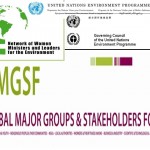
The day before the Governing Council got underway, the Network of Women Ministers and Leaders for the Environment (NWMLE) and UNEP hosted the second High-Level Gender Forum. Prof Andjelka Mihajlov participates, by invitation to “Gender Forum” as a member of the “Network of Environmental Women Ministers and Leaders”, as the former Minister for Protection of Natural Resources and Environment. The forum participants called upon ministers and environmental leaders to have dedicated officials for coordination of related gender and environment programmes and agreed to send a consolidated proposal on gender actions to be forwarded for consideration by UN Secretary General’s High-level Panel of Eminent Persons on the Post 2015 Development Agenda. The women ministers also requested nations to support the ratification of the Minamata convention on Mercury, which opens for signing in October.
More about meetings at www.unep.org . Moments from EASD participation are in Galleries of pictures. These activities are foreseen as the important international cooperation activities.
Prior to this, organisation participate at Rio+20 Conference.
Projects 2004-2011
- Sustainable Development and Environment towards EU: “EnE – Environment to Europe” Conferences 2005, 2006, 2007, 2008, 2009, 2010, 2011, in cooperation with Serbian Chamber of Commerce
- E-communication standards , 2011, supported by Ministry of Environment and Spatial Planning
- “Support to the Department of Planning, Programming, Monitoring and Reporting on EU Funds and development assistance to the Office for European Integration of Serbia, for establishing a partnership to promote the use of international assistance “, participant as the member of leading SEKO Consortium for Environment and Energy, 2011 ,
- Ecological footprint: analysis and training, project supported by UNESCO, 2011
- Possible aspects of environmental protection and natural resource management for Rural Development, supported as advisory project in the “Project on Transitional Agriculture Reform,” World Bank , 2011, 2011/2012, the Ministry of Agriculture, Forestry and Water Management of the Republic of Serbia
- Environment Forum , project supported by EC (DG Environment)
- Analytical study of the impact of air pollution on the population in selected urban locations (Pancevo, Vrsac, Bor), (participation in the project with the questioning of citizens in selected locations on the subject), a project supported by the ministries responsible for the environment and for science
- Hazardous Waste Management, TAIEX DG Enlargement INFRA 32384 project, 2009
- Say Yes to Palilula , project supported by City of Belgrade Municipality Palilula
- Modify habits – keep Belgrade clean!, the project supported by the Secretariat of Environment of Belgrade
- Hit the right tone by use environmentally friendly rules , project supported by City of Belgrade Municipality Vracar
- Regional environmental advocacy and cohesion of the Western Balkans (abbreviation: REA), Project supported by the Embassy of Nederland (2009-2011) , REA Project Snapshots , Courses
- Children – the guardians of municipality, project supported by City of Belgrade Municipality Vozdovac
- Local Environmental Security (abbreviation: LES), project supported by OSCE in Serbia, LES Brochure
- Keep it healthy, keep it green, keep it European , project supported by NDI
- Involvement of NGOs in Serbia in the research of renewable energy sources, a project supported by the EU
- My Belgrade – My Environment , the project supported by the Secretariat of Environment of Belgrade
- Local strategic planning , project supported by City of Belgrade Municipality Stari Grad
- Technology Transfer Partnerships, project supported by CIDA
- Sustainable development and environmental leaders for tomorrow, 2006/2007, MATRA
- Building a common ‘green’ future in Europe (Regional Initiative for cohesion in the field of environment), project supported by Open society Fund
- RENCO – Regional Environmental Cohesion: Towards sustainable development strategy for urban South-East Europe, project supported by Sida and Ministry of Environment
- Women as the Voice for Sustainable Development and Environment , project supported by CIDA, WAVE_Report_2007-draft
- Education courses for provincial and local authorities on public participation in decision-making related to the Environmental Impact Assessment and Strategic Impact Assessment , Project supported by Ministry of Environment




